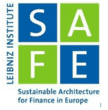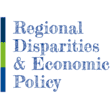-
- Researcher / Analyst Job
- Posted 3 days ago
Economic Analyst - Microsimulation Modelling of Taxation and Social Benefits in the EU
At Joint Research Centre of the European Commission in Sevilla, Spagna
-
- Graduate / Traineeship Job
- Posted 5 days ago
Führungs-Trainee (m/w/d) in der gesetzlichen Unfallversicherung
At BGW - Berufsgenossenschaft für Gesundheitsdienst und Wohlfahrtspflege in Dresden, Germania
-
- Researcher / Analyst Job
- Posted 5 days ago
Economic Analyst – Corporate Tax Modeller
At Joint Research Centre of the European Commission in Sevilla, Spagna
-
- Junior Industry Job
- Posted 6 hours ago
Junior Labview Developer (BE-CEM-MTA-2025-81-GRAE)
At CERN in Genève, Svizzera -
- PhD Candidate Job
- Posted 4 days ago
Researcher in Economic Theory and Policy, Behavioural Economics, or Econometrics (75 %; EG 13 TV-L)
At Düsseldorf Institute for Competition Economics (DICE) - University of Düsseldorf in Düsseldorf, Germania
-
- Other Job
- Posted 1 day ago
Mechatronics Technician (BE-GM-HPA-2025-90-LD)
At CERN in Genève, Svizzera -
- Graduate / Traineeship Job
- Posted 1 day ago
Software Engineer (C/C++) (BE-ICS-STF-2025-69-GRAP)
At CERN in Genève, Svizzera -
- Executive / Senior Industry Job
- Posted 1 day ago
Mechanical Technician for Collimator Systems (SY-STI-TCD-2025-80-GRAE)
At CERN in Genève, Svizzera -
- Mid-Level Industry Job
- Posted 1 day ago
Collimator Systems Engineer (SY-STI-TCD-2025-70-GRAP)
At CERN in Genève, Svizzera -
- Mid-Level Industry Job
- Posted 1 day ago
Computing Engineer (EP-CMG-CO-2025-96-LD)
At CERN in Genève, Svizzera -
- Postdoc Job
- Posted 20 hours ago
One-year Postdoctoral Fellow (m/f/d)
At Leibniz Institute for Financial Research SAFE in Frankfurt am Main, Germania
-
- PhD Candidate Job
- Posted 1 week ago
8 Fully-paid PhD Positions in the Research Training Group "Regional Disparities and Economic Policy"
At University of Duisburg-Essen in Duisburg, Germania
-
- Mid-Level Industry Job
- Posted 2 days ago
Treasury Analyst (FAP-DHO-TR-2025-93-LD)
At CERN in Genève, Svizzera -
- Assistant Professor / Lecturer Job
- Posted 2 days ago
Lecturer/Senior Lecturer/Associate Professor in Economics x 2
At Lincoln University Christchurch in Christchurch, Nuova Zelanda -
- Practitioner / Consultant Job
- Posted 2 days ago
Data Engineer (FAP-BC-ENG-2025-94-LD)
At CERN in Genève, Svizzera -
- Practitioner / Consultant Job
- Posted 2 days ago
Technical Lead & Full Stack Software Engineer (HSE-TS-CS-2025-91-LD)
At CERN in Genève, Svizzera -
- Other Job
- Posted 2 days ago
Electromechanical Technician (TE-MPE-MI-2025-89-LD)
At CERN in Genève, Svizzera -
- Practitioner / Consultant Job
- Posted 2 days ago
Mechanical Engineer (EN-MME-EDM-2025-66-GRAP)
At CERN in Genève, Svizzera -
- Graduate / Traineeship Job
- Posted 2 days ago
Robotics Engineer (BE-CEM-MRO-2025-67-GRAP)
At CERN in Genève, Svizzera -
- Practitioner / Consultant Job
- Posted 2 days ago
Firmware and Electronics Engineer - High Precision Timing Distribution (EP-ESE-BE-2025-97-LD)
At CERN in Genève, Svizzera -
- Practitioner / Consultant Job
- Posted 2 days ago
Performance & Reliability Engineer for Particle Accelerators (TE-MPE-CB-2025-95-LD)
At CERN in Genève, Svizzera -
- Graduate / Traineeship Job
- Posted 2 days ago
Embedded Linux Engineer (BE-CEM-IN-2025-68-GRAP)
At CERN in Genève, Svizzera -
- Graduate / Traineeship Job
- Posted 2 days ago
Electro-Mechanical Technician (TE-MSC-LMF-2025-79-GRAE)
At CERN in Genève, Svizzera -
- Assistant Professor / Lecturer Job
- Posted 2 days ago
Junior Professorship (W 1) in Statistics with a focus on economic prediction
At University of Kiel in Kiel, Germania
-
- Researcher / Analyst Job
- Posted 3 days ago
Mechanical Technical Engineer (ATLAS Magnet Project) (EP-ADO-SO-2025-84-LD)
At CERN in Genève, Svizzera



